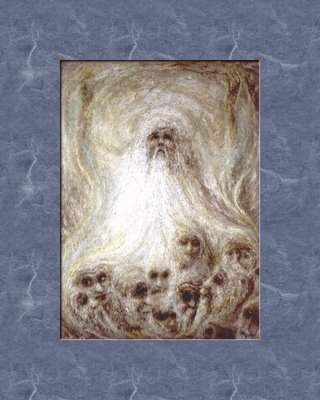Burial and Afterlife in Yahwism, Part 4

I am using ethnographic evidence from African cultures to build a model that helps illuminate Yahwism's approach to death. The African comparative evidence shows that the hereafter is able to be experienced as divided into very different parts. In Nyakyusa belief in southwest Tanzania, the hereafter (Kubusyuka) has one division known as Kubusyuka Bwa Babibi, which is akin to the depths of Sheol, cut off from the living, populated by shades deemed irrelevant to ongoing earthly community. Another division known as Kubusyuka Bwa Banunu, in contrast, is a place of more safety and fellowship. It is populated by those who are interconnected with their living descendents, who share family meals with their living offspring, who have the status of ancestors among their living kinfolk.
In coming posts, I am able to show that we have something similar in  Bible. The bonds of lovingkindness (Hebrew khesed), grounded in kinship and ancestral land, are powerful enough to fend off the terrors of Sheol and preserve the living-dead in "the bundle of the living under the care of the LORD." Here, their lives are not slung away, "as from the hollow of a sling." (I am using Abigail's rich imagery.)
Bible. The bonds of lovingkindness (Hebrew khesed), grounded in kinship and ancestral land, are powerful enough to fend off the terrors of Sheol and preserve the living-dead in "the bundle of the living under the care of the LORD." Here, their lives are not slung away, "as from the hollow of a sling." (I am using Abigail's rich imagery.)
Note the use of khesed in Genesis 47:29. Note how Ruth is able to tell Naomi that not even death will part the two of them (Ruth 1:17). David is able to trust that his soul will someday join the soul of his dead baby (2 Samuel 12:23). In a spasm of spritual insight, Job is able to imagine a zone of refuge and asylum within the realm of Death (Job 14:13). The speaker of Psalm 16 is able to speak of the godly deceased as buried saints, in whom all the living continue to delight (Ps 16:3). (Series to be continued...)
0 Comments:
Post a Comment
<< Home